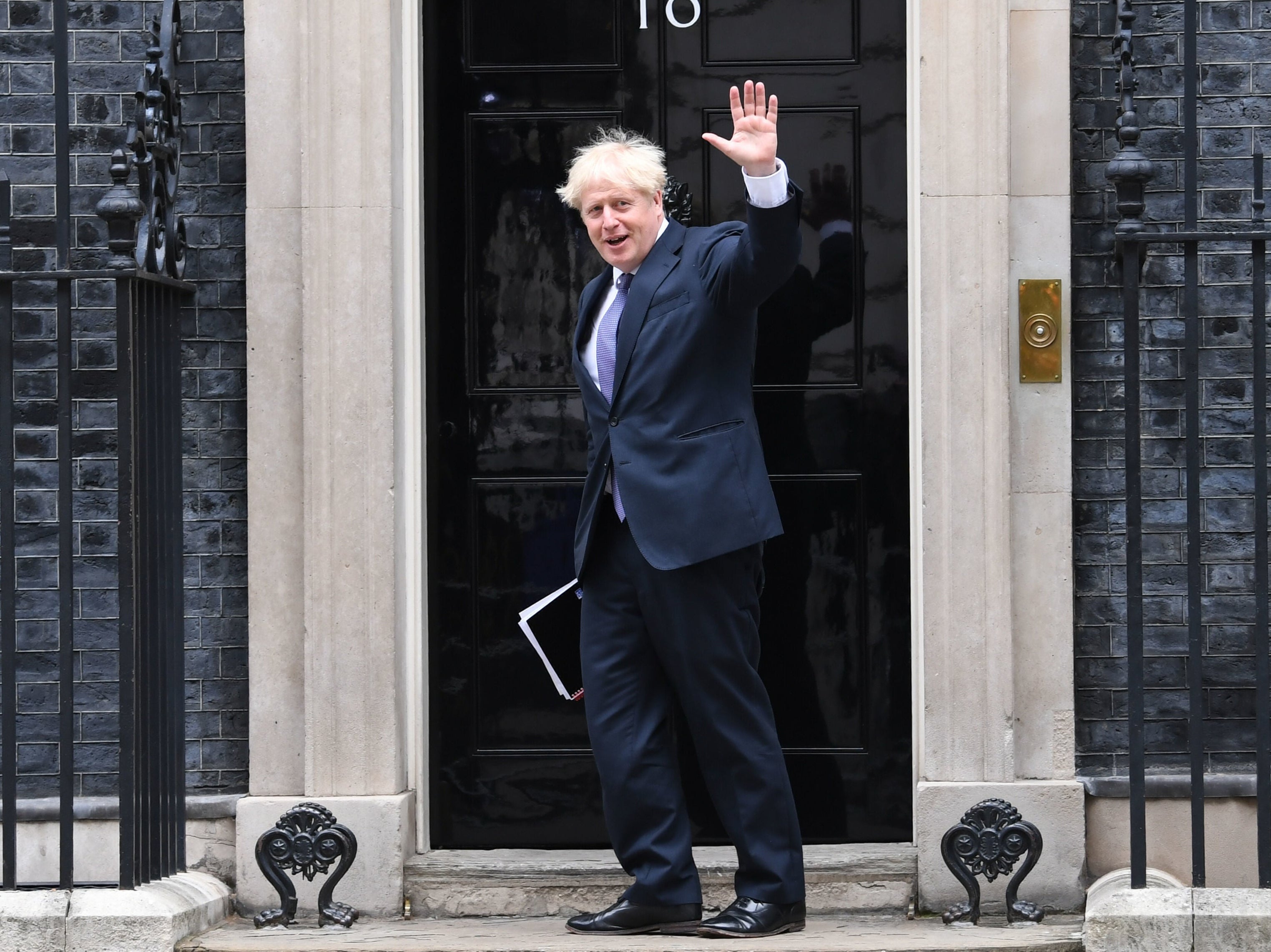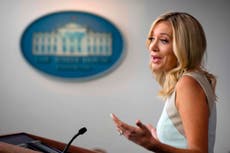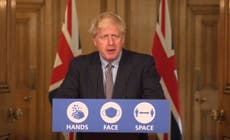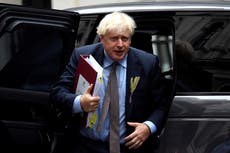Appointment of a White House-style spokesperson shows how uncomfortable Boris Johnson is with close interrogation
The prime minister intends to hand over the chore of speaking to the press to someone who will take the grillings for him, says Andrew Woodcock


Boris Johnson’s welcome return to the Downing Street lectern after more than a month’s absence proved the power of the press conference and its dangers for the politician taking part.
Johnson’s “rule of six” announcement dominated the TV bulletins and newspaper headlines, getting the vital public health message across in a way no social media campaign can.
But he was also forced to watch his own scientific adviser tell the world that it would be “completely wrong” to assume that the PM’s multi-billion pound drive for regular mass coronavirus testing would actually work.
For a politician whose appeal is supposedly founded on his mastery of self-presentation, Mr Johnson has proved curiously wary of direct exposure to the media since coming to office.
Often using social distancing requirements as a justification, he has regularly opted to use a Downing Street photographer and video team to document his activities, rather than allowing in an independent “pool” who might not produce such a flattering portrait of the PM.
And it was notable that, despite the government’s assurances that schools are safe for children and employees should be considering going back to their workplace, Wednesday’s press conference remained virtual, with reporters asking questions by video link.
Of course, Mr Johnson hopes soon to hand over the chore of speaking to the press to a White House-style spokesperson, with former ITV journalist Allegra Stratton currently tipped to take the job in a move from the Treasury, where she has been sharpening Rishi Sunak’s comms since spring.
Whether the on-screen spokesperson’s pronouncements on the PM’s thinking will prove such an attraction as an appearance by the man himself remains to be seen. After an initial flurry of interest, many in Westminster expect TV channels to limit themselves to newsworthy clips rather than live coverage.
Newspapers are likely to continue to prefer the behind-closed-doors lobby briefings – traditionally twice-daily but reduced to a single conference call since the advent of Covid – where they can quiz the PM’s existing official spokesperson in a forum where convention dictates that the meeting continues until all questions are exhausted.
And it now appears that the on-screen spokesperson may face competition from an unexpected quarter, with Labour indicating that Sir Keir Starmer is planning to hold regular press conferences of his own.
Tony Blair and Gordon Brown held monthly press conferences, fielding questions on any subject for an hour or more at a time to demonstrate the transparency of their administrations.
But the practice was swiftly ditched by David Cameron when he came to power in 2010, and if it had not been for the coronavirus there is little doubt that Mr Johnson too would have steered clear of them.
He has shown himself uncomfortable with close interrogation, both at Prime Minister’s Questions in the Commons and behind the No 10 lectern, and he has already scaled back Covid-19 briefings dramatically. Once the pandemic subsides – and once he has a public stand-in to take the grillings for him – many in the press fear that opportunities to quiz him will be few and far between.
Yours,
Andrew Woodcock
Political editor




Join our commenting forum
Join thought-provoking conversations, follow other Independent readers and see their replies
Comments